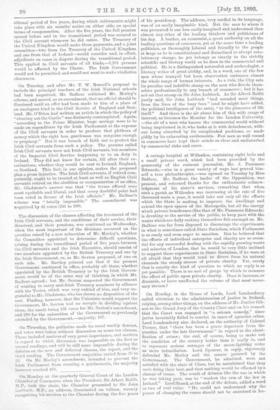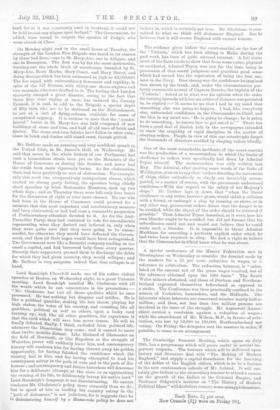On Monday, in the House of Lords, Lord Londonderry called
attention to the administration of justice in Ireland, relying, among other things, on the address of Mr. Justice Gib- son to the Grand Jury of the County Clare and on his remark that the Court was engaged in "a solemn comedy," since juries invariably failed to convict in cases of agrarian crime. Lord Londonderry also declared, on the authority of Colonel Turner, that "there has been a grave departure from the practice under the late Government" in regard to the classi- fication of crime ; the end, of course, being to make out the condition of the country better than it really is, and to represent serious outrages of the moon-lighting order as mere intimidation. Lord Spencer, in reply, vigorously defended Mr. Morley and the course pursued by the Government. The government, he admitted, were not satisfied with the state of Clare, but he maintained that they were doing their best, and that nothing would be effected by a change of venue. The result of debates like the one in which he was taking part, was to "weaken the arm of the 16,w in Ireland." Lord Shand, at the end of the debate, added a word or two of real value. "He could not understand why the power of changing the venue should not be exercised in Ire- land, for as it was constantly used. in Scotland, it could not be held to east any stigma upon Ireland." The Government, he added, were bound to respect the opinion of Judges who went circuit in Clare.



































 Previous page
Previous page